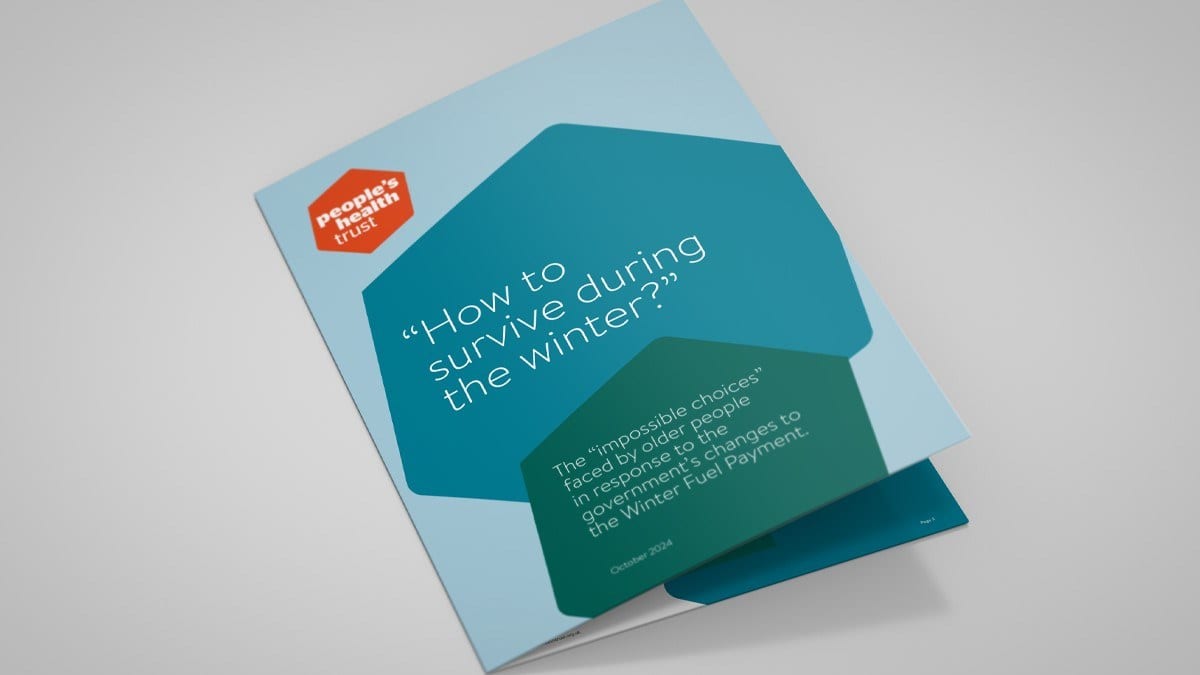
A new report by People’s Health Trust finds that some of the most vulnerable older people in Great Britain face ‘impossible choices’ around heating or eating and are worried about how to survive the winter as a result of the government’s changes to the Winter Fuel Payment. People’s Health Trust is calling on the Chancellor to cancel the proposed changes to eligibility. Concerns and confusion about the changes are already causing worse health among older people in some of the most disadvantaged neighbourhoods in Great Britain. Should proposals like this be introduced again, the Trust calls on the government to ensure these are subject to a thorough equalities impact assessment and take account of the people most likely to be harmed by any changes and the impact on their health.
Dozens of grassroots and community organisations supporting older people told People’s Health Trust of the ‘catastrophic’ and immediate impact of the decision to means test winter fuel payments, including higher levels of stress, anxiety and worse mental health at the uncertainty of whether they will be eligible. One organisation told the Trust that “in order to pay for the bills people are likely to heat their homes less, cut on essential shopping, even eat less.”
I am a single disabled woman and I can’t afford to put my heating on for long and depend on jumpers and blankets to keep warm. So it’s a total disgrace."
Less money this winter is likely to increase pressures on people’s finances, and many said they faced increased fuel poverty as a result. Fuel poverty is a threat to people’s health. Cold temperatures significantly increase the risk of strokes and heart attacks. It is estimated that circulatory diseases cause between 40 and 50 per cent of excess winter deaths in England. It is also estimated that 33 per cent of excess winter deaths are attributable to respiratory diseases. Poor mental health is also likely to increase or be caused by living in a house that is too cold.
Disabled pensioners are even more likely to be adversely affected – seven in ten will miss out on the winter fuel payment according to Department of Work and Pensions (DWP) figures - as well as people who have unavoidably high energy needs because of illness or chronic pain. The Trust heard that people with chronic health problems simply can’t reduce their heating and face cutting back further on other essentials.
The report highlights that those who are more isolated, people with language barriers, racially minoritised communities, those living with mental health conditions and dementia, and those who are digitally excluded are likely to be among the older people most affected by the changes, furthering widening existing health inequalities.
We have heard from communities that older people simply don’t know how they’re going to survive the winter without the Winter Fuel Payment. It is imperative that the UK and Scottish Governments reverse this decision and learn early that any policy change needs to thoroughly consider the consequences for the health of the poorest in society."
John Hume
Chief Executive, People's Health Trust
